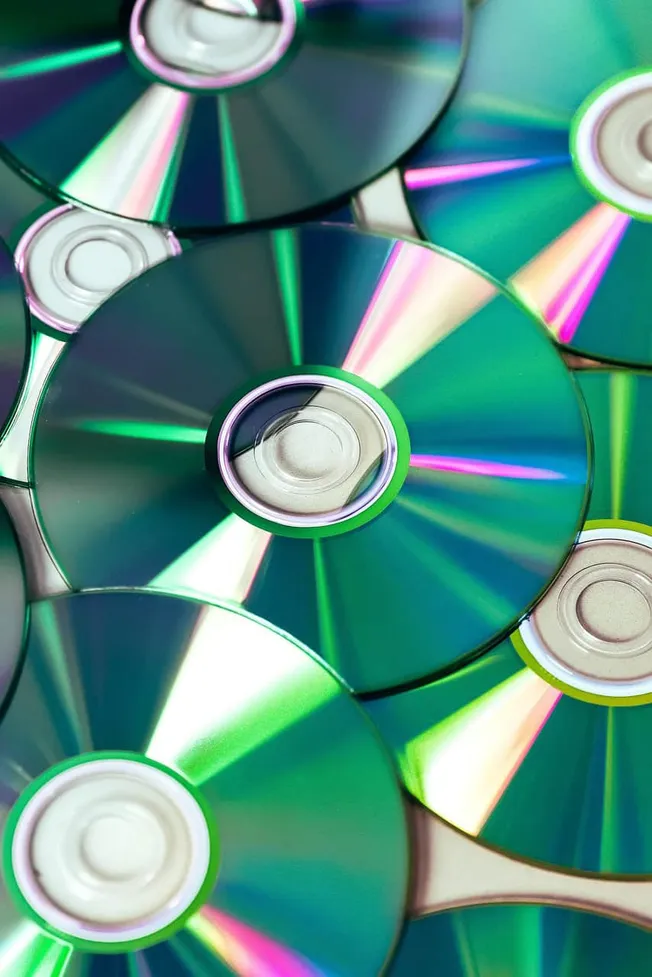Even in today’s digital music scene, physical CDs still play an important role for indie artists. Short run CD duplication provides an affordable and flexible way to produce and sell high-quality discs without a big upfront investment.
Benefits of Short Run CD Duplication for Independent Artists
by Chris Huff via Discmakers Blog
As an indie artist in today’s world, making CDs might seem like a waste. It could feel like clinging to something from a bygone era in the hopes that the world will shift back again and music won’t be so digitally focused. However, even though the world has changed, there is still a market for CDs, especially among indie artist fanbases. People love physical products. It’s something to hold in your hand, show people, and it’s always yours — no corporation can take it away from you! But laying out thousands of dollars for 1000 replicated discs might be out of reach for you at this stage of your career. Here’s some strategies so that you can save money with short-run CD duplication and still be able to have physical media to sell.

Introduction to CD duplication
CD duplication is the process of creating multiple copies of a CD from a single source disc (the “master”). A CD burner or duplicator is used to make exact replicas of this master. Usually, commercial CD duplication is for short-run orders of under 1000 units. The simplest CD duplication is done at home on your very own CD burner. Commercial CD duplicators will perform verification on your discs to make sure that they are 100% error free and completely identical to your master. As opposed to replication where the discs are created from molded plastic, duplication uses pre-made blank CDs.
Understanding short run CD duplication
With many commercial CD duplicators, the only real difference between a duplicated run and a replicated run is the disc used. You can still order the same packaging and artwork options that you would with a replication order.
What constitutes a short run?
A short run in CD duplication is generally considered everything from 1 to 1000 units.
Key differences between short- and long-run duplication
Long-run duplication refers to any production of units over 1000. What are the key differences? As the great Nigel Tufnel of Spinal Tap whose amp went to 11 might say, “Well the numbers are larger, aren’t they?” Obviously, 2000 is more than 50. The more units you duplicate, the less each one will cost. You can save money in the long run by duplicating more CDs and make more of a profit if you sell them, but don’t order a bunch of CDs that will sit around your house unsold. Ultimately, it is up to you to gauge your budget, specific needs, and expected demand.
Benefits of short run CD duplication for indie artists
It’s great to have something to sell. Probably every indie artist out there knows the embarrassing feeling of saying “no, I don’t have an album yet” or “no, we’re still working on the website” when you are just getting started. The main benefit of short-run duplication is just having product — any product — to sell. It’s one way to show your followers, family, and friends that you indeed are legitimate.
Cost-effectiveness
It’s almost a given that a smaller order will cost less. However, you will pay a higher per-unit price, so some prefer to place a bulk order.
Lower initial investment
The reality for many artists is that they don’t have a lot of seed money to start with to invest in physical product manufacturing. Short-run duplication solves that problem, as you can purchase as many units as you can afford, and keep on purchasing them until demand picks up and you can afford to order more.
Reduced financial risk
Many artists have to borrow money or use a credit card to pay for their first run of CDs. While there’s no shame in incurring some debt to finance your career, if you aren’t sure you’re going to sell 1000 units, that might not be the wisest investment. Doing a short run of duplicated CDs means it’s easier to pay for all of the costs out of pocket and thus begin your marketing and sales efforts debt-free.
Flexibility and adaptability
The ability to customize your CD, DVD, or Blu-ray duplication order to your exact numerical specifications gives you the flexibility needed to order the units you need — no more, no less.
Quick turnaround times
If you are ordering printed packaging with your short-run duplication order, generally it will take equally as long as a replication order. But for those with more minimal packaging needs, you can get duplicated CDs quite quickly. You may have to pay extra for a rush order if you need your discs in a hurry.
Adapting to market demands
Perhaps you’re doing local gigs occasionally and don’t really have a sense of how many CDs you might sell. Ordering a short run of 50 and seeing how fast you sell them will give you a good idea of the current market demand for your product. You can always order more! The first 100 tend to go very quickly if you have a network of friends, family, and followers around you who are excited for your release. If you are a gigging musician with many regular, well-attended dates, you’ll want to order enough to keep the fans satisfied, especially if you are touring for any length of time. It’s a pain to have to ship products to a non-permanent address and hope that you and the CDs arrive at the same time! Planning ahead in that instance is crucial, but it’s also worth it to order small and take your time to gauge the market if you are just starting.
Enhanced quality control
Doing a short run means that, if you are not happy with your recording after the fact, not many copies exist. If you’re not sure if you’re happy with the music, it’s also a good way to test it out on people. Judging by their reaction, you can make adjustments. You can always re-record, remaster, and re-release. Major artists do it for all sorts of reasons all the time (i.e. Taylor’s Versions).
Maintaining artistic integrity
Artistic integrity is a funny phrase in these times. In the past it used to mean a path devoid of commercial interests, a commitment to one’s own creative vision and values, and authenticity and originality in one’s work. Wikipedia now defines it as the ability to omit opposing values that would corrupt an artist’s original vision and aesthetic. In the current music industry, artists with great integrity often allow their music to be used in commercials. But however you define it, having the ability to quickly release music in short runs allows artists to explore their sonic visions and experiment without breaking the bank. Who can afford to experiment on physical media when the price tag is thousands of dollars? For far less, you can explore different looks, different sounds, and different methods of presentation in short runs of duplicated CDs. Artistic integrity doesn’t necessarily lie in having a definite vision or in forgoing commercial considerations, but in the exploration of such things while believing in your own abilities. Short runs can be a good way to figure out who you are artistically.
Options for customization
You also have a multitude of options to customize your printing and packaging in short run duplication like you would with any replication package. At a company like Disc Makers, short-run duplicated CDs can be put into jackets, mailers, digipaks, jewel cases, and wallets. Full-color on-disc printing is available as well. Only you and perhaps one or two people “in the know” will be aware that your discs are duplicated, not replicated!
Short run CD duplication as a marketing tool
You might want to save replicated CDs for selling to customers and do a short run of duplicated discs to distribute to whomever you might want to give a disc away to for promotion.
Promotional campaigns
Most press kits are electronic these days, but many DJs and reviewers still prefer to have a CD in hand. Short run is one way to save a little money on giveaways and not detract from your total inventory.
Merchandising and gigs
As we’ve said already, it’s great to have something to sell. Maybe you need just a few extra copies of previous albums or want to do a short-run special project like a one-off live concert or an album of outtakes.
Fan engagement and loyalty building
What do fans love more than a bargain? Free stuff! For example, Prince gave out a copy of his new album to every ticket holder for the Musicology tour. Short-run duplication can again be a solution to not having to give out your replicated CDs that you might want to sell. The more actual value you give to your followers, the more loyalty it will gain, and the more long-term devotion it will inspire.
Where to access short run CD duplication services
A simple Google search will give you quite a few names of duplication services to choose from! Navigating the choices though can be tricky, especially with Google’s new AI sponsored results making everything needlessly confusing. Bearing that in mind, turning to reviews and recommendations can assist in selecting a company. Remember, your friends at Disc Makers are always here to help!
Choosing the right service provider
You’ll want to make sure that you choose a duplication house that can give you the product you need. If you’re looking for full-color on-disc printing and professional packaging, you might want to go with a company that also does replication, as the quality will most likely be higher. Investigate the costs involved; the clearer the idea you have of what you want, the better!
Evaluating quality and price
It never hurts to scan Google and Yelp reviews, keeping in mind that disgruntled customers always need a place to complain. In short-run duplication, as with replication and indeed any other kind of manufacturing, errors will occur; it’s how the company handles them that matters, and if they fix all errors expediently. Don’t always choose the cheapest option, but don’t always rule out the cheapest option if it seems that the reviews are solid and they have the configuration you’re looking for. Ask your musician friends for recommendations, and if you are not using a company that also does replication (even if you are), make sure to investigate any possible hidden costs.
Chris Huff has been a professional singer, multi-instrumentalist, songwriter, and producer for over 25 years. He has worked as a sideman with Peter Yarrow (Peter, Paul, and Mary), Echo and the Bunnymen, Chuck Hammer (David Bowie, Lou Reed), and Tom Kitt (Broadway composer of Next To Normal). Chris also wrote liner notes for David Bowie’s Live And Well CD.





